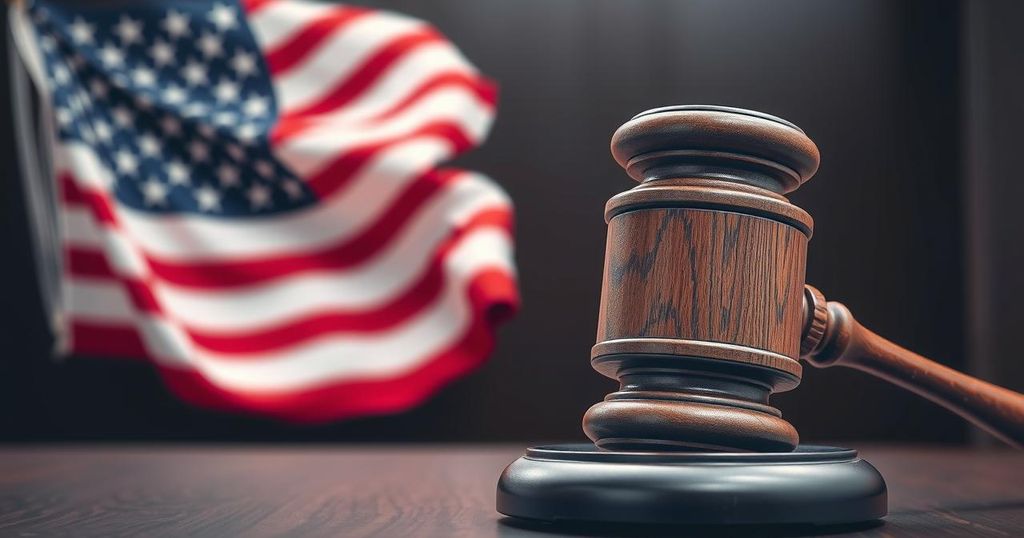Trump Administration Appeals to Supreme Court for Deportations of Venezuelan Gang Members
The Trump administration seeks Supreme Court intervention to lift lower court blocks on deportations of Venezuelan gang members under the Alien Enemies Act. The case is part of broader tensions between the administration and the judiciary concerning national security operations, with the Supreme Court expected to weigh in on ongoing legal challenges.
The Trump administration has petitioned the Supreme Court to allow deportations of alleged Venezuelan gang members under the wartime Alien Enemies Act. This appeal comes following a federal appeals court in Washington that had previously blocked the administration from proceeding with such deportations, which are aimed at members of the Tren de Aragua gang.
Acting Solicitor General Sarah Harris stated, “This case presents fundamental questions about who decides how to conduct sensitive national-security-related operations in this country — the President, through Article II, or the Judiciary, through [temporary restraining orders].” The Supreme Court has instructed lawyers for the Venezuelan nationals challenging this action to respond by April 1.
The administration’s efforts to utilize the Alien Enemies Act to deport these migrants has faced widespread lawsuits, making this the sixth request for emergency relief to the Supreme Court. The case has intensified ongoing tensions between the Trump administration and the judiciary, particularly after President Trump publicly called for U.S. District Judge James Boasberg’s impeachment.
In her filing, Harris criticized Boasberg’s orders, arguing that they impede the President’s decisions on national security. She emphasized, “[T]he district court’s orders have rebuffed the president’s judgments as to how to protect the nation against foreign terrorist organizations…” The controversy began when Trump invoked the Alien Enemies Act, declaring that members of the Tren de Aragua, accused of threatening the U.S., were subject to immediate deportation.
Five Venezuelan detainees mounted a legal challenge against the deportation orders, resulting in Judge Boasberg initially blocking removals for 14 days, subsequently extending the hold to all Tren de Aragua members under the Act. Following his ruling, the Justice Department has been embroiled in compliance questions, especially after planes carrying migrants landed in El Salvador.
Trump’s administration argued that Boasberg’s orders significantly undermine national security by allowing potentially dangerous individuals to remain in the U.S. Harris noted, “Those orders — which are likely to extend additional weeks — now jeopardize sensitive diplomatic negotiations and delicate national-security operations…” The Supreme Court is also reviewing other significant cases involving Trump’s executive actions, including birthright citizenship and personnel issues in federal agencies.
In summary, the Trump administration’s request to the Supreme Court seeks to assert authority under the wartime Alien Enemies Act regarding the deportation of Venezuelan gang members. The case highlights ongoing conflicts between the executive branch and the judicial system, particularly concerning national security operations. This legal development exemplifies the critical balance of power in decisions impacting both immigration policy and national security.
Original Source: www.cbsnews.com








Post Comment